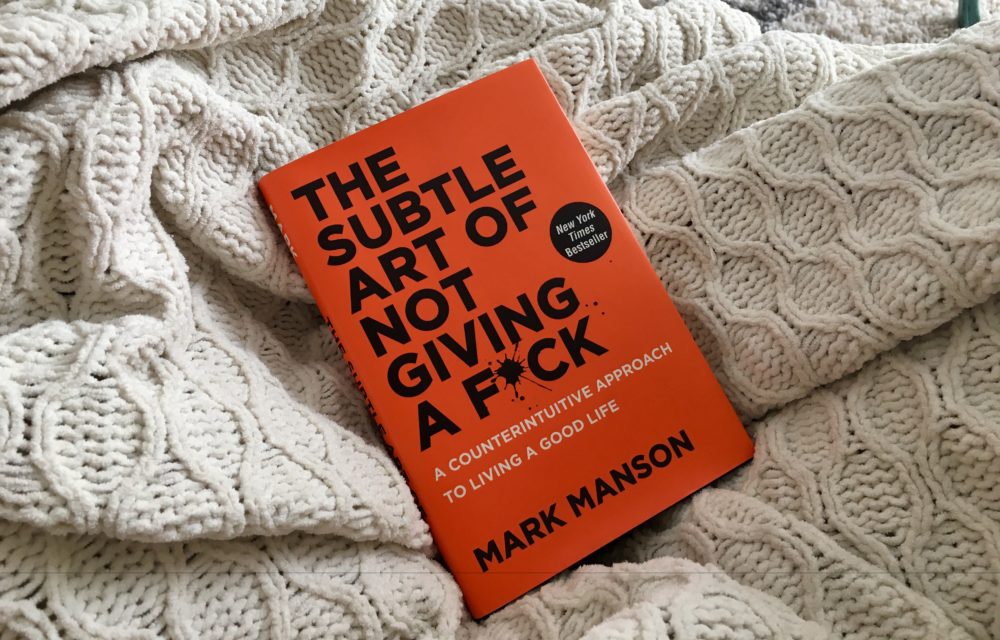On many nights, I get the most uneasy of feelings that inexplicably lead to (existential) questions such as: What is the meaning of life? What is my purpose in it? Am I living it the way I should? What exactly is a job? Do I actually like my job? But, is it what I want to do and pursue? Will it lead to anything meaningful or significant? What about my dreams and passions?
Amid the confusion and peak hopelessness, I’m forced to look for answers outside my head. Friends tend to give the most general affirmations, and the religious advice I had hoped to help rendered me useless. This is why I have decided to get on the millennial bandwagon and resort to the self-help industry.
The Steve Jobs Story and Abusing Anecdotal Evidence
The story of American business magnate, Steve Jobs, isn’t real whatsoever when it comes to the public eye. I’m not claiming that it has been fabricated, but it’s a reconstruction of reality with meaning; a perspective that represents dramatic downfalls followed by what are usually major successes. I don’t have the same privileges that were bestowed on Jobs. Him and I had very different backgrounds and lived in very different times. Hence, it seems ridiculous to compare myself to him. To be expected to become as successful or as accomplished as he was/is would be meaningless and unhelpful. We can’t all become Steve Jobs. It’s evidently impossible.
The late renowned Egyptian self-help book author, Ibrahim El-Fiky, demonstrates how the fear we feel in pursuit of our dreams is false. He shows that by telling a story about a friend of his who feared a dog, but finally gathered the courage to shove his fist into its mouth only to find it toothless.
Kareem Esmail, another Egyptian personality who happens to be a motivational speaker and a life coach, can be seen talking in the video above about patience as one of the solutions for depression. He relies on the anecdote of a blind man who hid away his blindness for decades as evidence.
Egyptian Islamic preacher Amr Khaled’s ‘A Smile of Hope’ relies heavily – if not solely – on anecdotes to give people hope and teach them life lessons. Stories of successful people and what they did can be found all over the place in their books and talks.
This is a misuse of anecdotal evidence. Making one believe that the foundational basis for the keys to success and the secrets of happiness are anecdotes could never be more false. Anecdotes alone can’t provide answers to life’s most difficult questions. Affirmations and metaphors or catchy acronyms won’t necessarily do the trick either. Why should I take what happened to that one friend of yours as a basis for whatever lesson you’re teaching me?
Using anecdotes is dangerously appealing to us, but selected individual cases prove nothing. They are neither grounded in reality nor are customized to each of our specific beings. Their logic usually crumbles under honest investigation. If two events are mentioned after one another in a dramatic narrative does that mean the first event caused the second? Not necessarily, ofcourse, no.
It’s Never Enough
Calling the death of a person’s father ‘one of the challenges of life’ or claiming that we shouldn’t be hindered by fear when following our dreams because ‘someone’ says that “fear is false evidence appearing real” are all things El-Fiky did.
In the same video that I had briefly mentioned above tackling depression, Esmail claims that the solution for depression depends on your relationship to God, your trust in him and having “beautiful patience”. In saying so, he disregards the possibility that a depressed person who needs the help of a mental health professional could be watching that video and feel that they’re not patient enough or that they have a bad relationship with God.
I am special. I can be anything I want. Luck plays no significant role and nor do circumstances. I must tackle life’s challenges and maintain a positive outlook in the face of adversity. The job market, my actual capabilities and limitations, my insecurities, none of them can stop me! I will be great! I am talented! What am I waiting for? These are the messages I found getting repeated over and over again and I’m left feeling like I’m under the tyranny of a disappointed father who believes that I’m never good enough.

Charlie Kaufman at a press conference for Karlovy Vary International Film Festival — Via KVIFF
Charlie Kaufman, the American award-winning screenwriter of ‘Eternal Sunshine of The Spotless Mind’, once said during a speech: “You are born into a body, into a family, into a situation, into a brain chemistry, into a gender, into a culture, into a time – as am I. At times I can feel the massive gravitation pulling of all these various things, pulling me in different directions, creating me. I watch the reactions I have, that are as much my father’s as they are mine. I know they are inherited through genes and situation, just as they have been for my father. And I feel immense loneliness in this prison, coupled with a great shame because I can see that this prison has an open door. But I can’t get through it. How weak I am. How can I not be a saner person? A healthier person? A more generous person? My sneaker company tells me that I can, and that it’s up to me. It is a sign of great weakness if I don’t ‘Just Do It’.”
The Antidote
Egyptian football star, Mohamed Salah, posted a recent picture on Twitter of himself reading Mark Manson’s self-help offering “The Subtle Art of Not Giving a F*ck’ that took the internet by storm and helped the book gain popularity in the Arab world.
Manson challenges many of our well-established personal narratives. He dismisses the belief that “every single one of us can be exceptional and massively successful” as a “paradoxical mantra” in a chapter called ‘You Are Not Special’. In the same chapter he attacks popular ideas of self-worth and warns of the dangers and unhealthy narcissism of having an unjustifiable sense of entitlement.
In the end, Manson bravely ends the book with a chapter titled ‘And Then You Die…’ where he honestly tells the story of how his friend’s death was the worst experience he has been through, but also the most transformational point in his life.

Mark Manson talking about his book on his YouTube channel — Via Mark Manson
Even though Manson does rely sometimes on unjustified anecdotal evidence to make generalized conclusions, he casually refers to academic research to make most of his points. It’s not perfect of course, but I believe that with the book’s massive popularity, it’s a great step in a direction that will change the self-help industry for years to come; be it in Egypt or around the world.
In any case, one thing couldn’t be made more clear to me: whether someone is offering me advice on how to live my life, how to be happy or how to unlock my potential, the least I could do is meet his advice and credentials with a healthy does of skepticism.




























